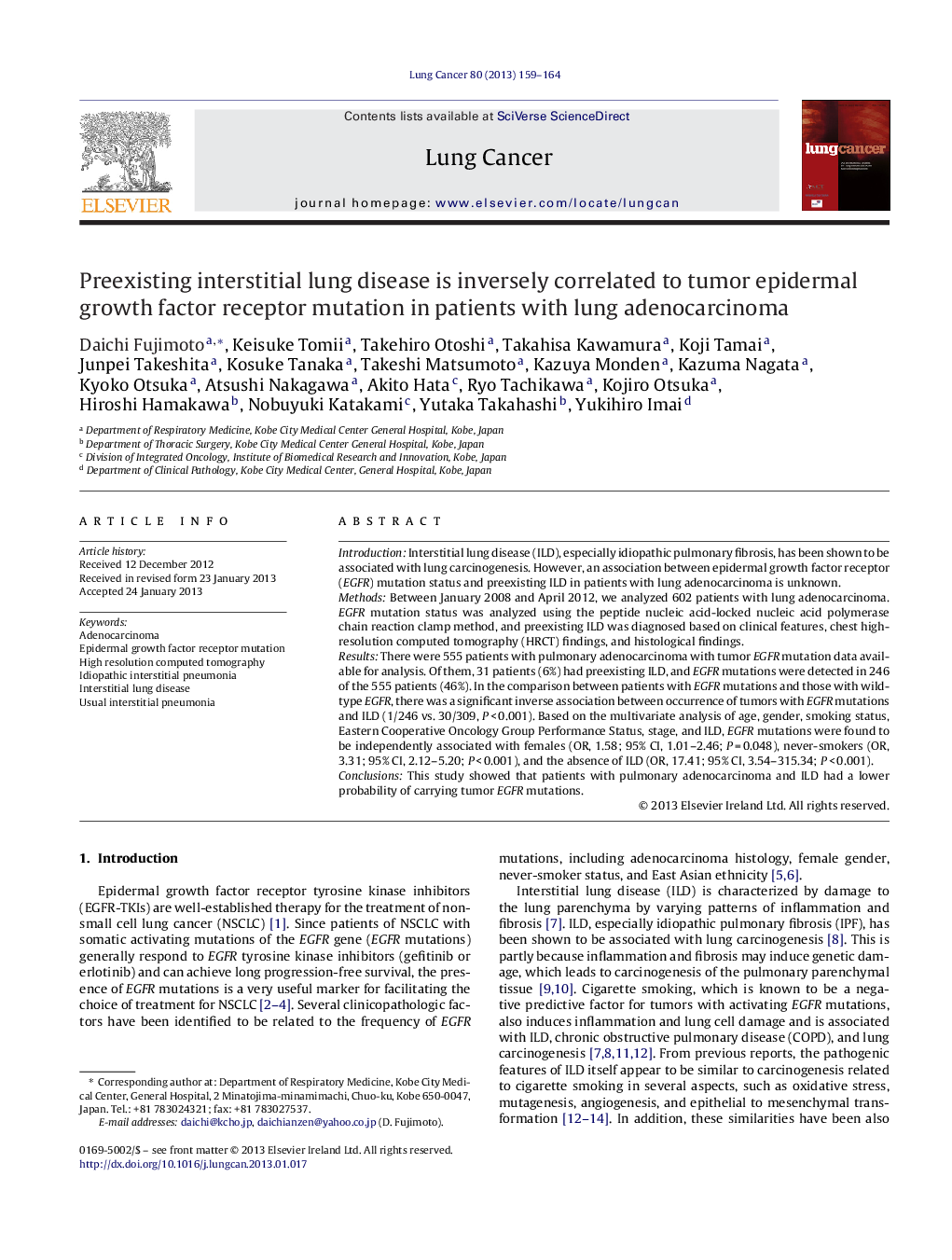| Article ID | Journal | Published Year | Pages | File Type |
|---|---|---|---|---|
| 2141311 | Lung Cancer | 2013 | 6 Pages |
IntroductionInterstitial lung disease (ILD), especially idiopathic pulmonary fibrosis, has been shown to be associated with lung carcinogenesis. However, an association between epidermal growth factor receptor (EGFR) mutation status and preexisting ILD in patients with lung adenocarcinoma is unknown.MethodsBetween January 2008 and April 2012, we analyzed 602 patients with lung adenocarcinoma. EGFR mutation status was analyzed using the peptide nucleic acid-locked nucleic acid polymerase chain reaction clamp method, and preexisting ILD was diagnosed based on clinical features, chest high-resolution computed tomography (HRCT) findings, and histological findings.ResultsThere were 555 patients with pulmonary adenocarcinoma with tumor EGFR mutation data available for analysis. Of them, 31 patients (6%) had preexisting ILD, and EGFR mutations were detected in 246 of the 555 patients (46%). In the comparison between patients with EGFR mutations and those with wild-type EGFR, there was a significant inverse association between occurrence of tumors with EGFR mutations and ILD (1/246 vs. 30/309, P < 0.001). Based on the multivariate analysis of age, gender, smoking status, Eastern Cooperative Oncology Group Performance Status, stage, and ILD, EGFR mutations were found to be independently associated with females (OR, 1.58; 95% CI, 1.01–2.46; P = 0.048), never-smokers (OR, 3.31; 95% CI, 2.12–5.20; P < 0.001), and the absence of ILD (OR, 17.41; 95% CI, 3.54–315.34; P < 0.001).ConclusionsThis study showed that patients with pulmonary adenocarcinoma and ILD had a lower probability of carrying tumor EGFR mutations.
